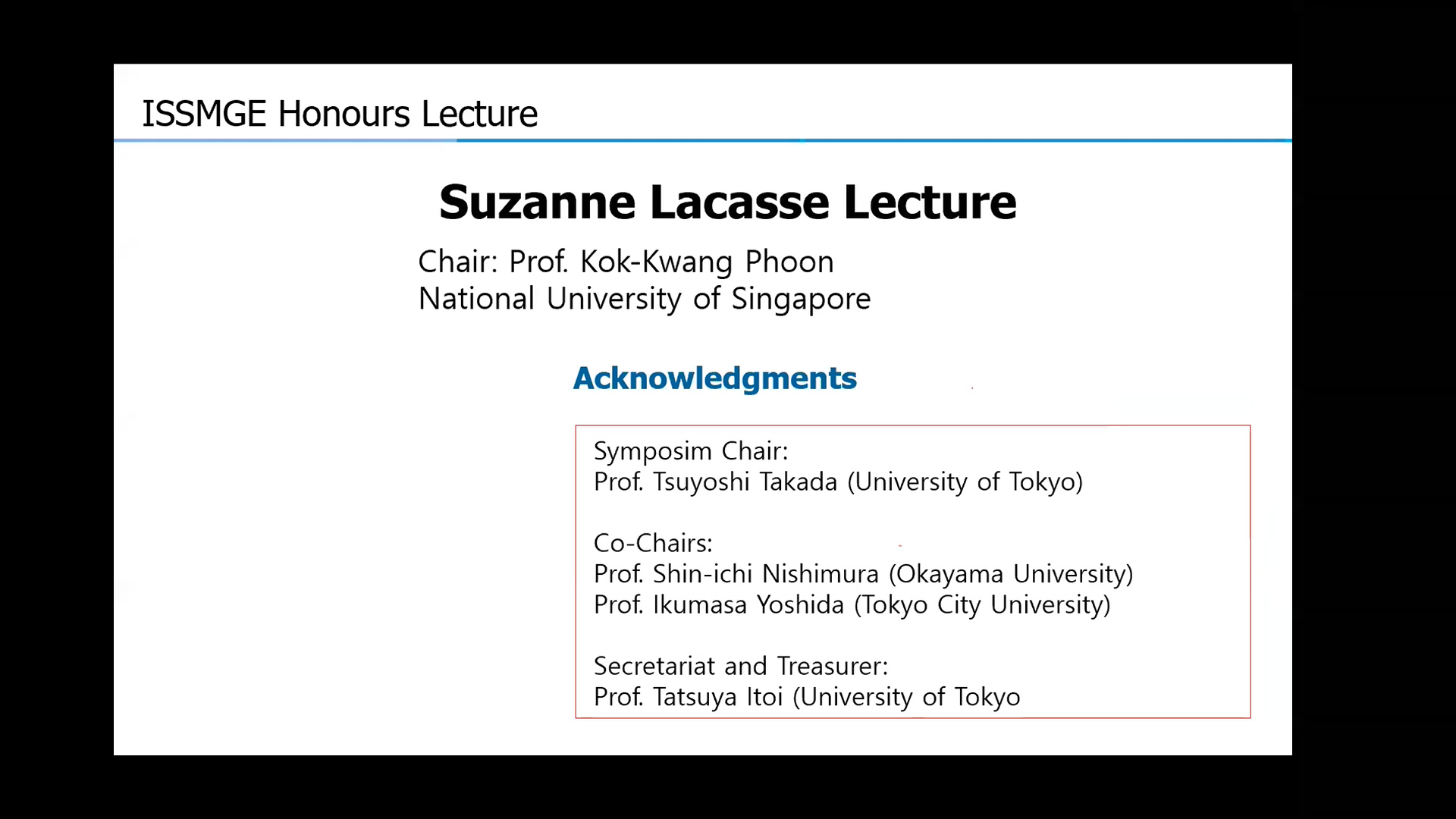About This Lecture
This lecture presents the methodology and outcome of a novel quantitative risk assessment implemented in a 10-year reconstruction project of two mountain highways in the epicenter area of the 2008 Wenchuan earthquake. Routed in deep valleys, the highways were severely damaged during and on multiple counts after the earthquake, making highway reconstruction life-threatening. After the earthquake, the highways were initially covered by loose soil deposits of landslides, and subsequently exposed to frequent landslide hazard chains in the forms of rock falls, rain-induced landslides, debris flows, landslide damming and flooding. The success of the reconstruction projects depends on the degree of landslide risk mitigation, which this paper defines as individual risk and potential loss of life. The paper describes how risk-informed decisions were made in the design and selection of highway alignment options and engineering risk mitigation measures, which were tested by a quantitative risk assessment procedure. Significant efforts were made to understand landslide hazard chains along the highways, particularly interactions between separate hazards in each chain, and their evolution over time. The quantitative risk assessment resulted in a significant reduction (to about 20% and 33% of the initial risk levels for Highways S303 and G213, respectively) in potential loss of life through the use of long tunnels to bypass the high-risk landslide zones and protective measures which respond more effectively to manageable, smaller scale hazards. Today, the approach of this study has influenced and become routine practice in the design and construction of new highways in the seismic mountainous region of western China.



![Risk Analysis and Machine Learning {"category":"honour_lecture","subjects":["Machine Learning and Big Data","Risk Assessment and Management","Risk and Reliability"],"number":"TC304-APSSRA-02","instructors":["J. Ching","P. Samui","L. Zhang"]}](/asset-v1:ISSMGE+RAML101+2022+type@asset+block@machine-learning.jpg)
![How to Estimate Characteristic Values for Design {"category":"short_edu","subjects":["Risk Assessment and Management"],"number":"TC304-101","instructors":["Yu Wang"]}](/asset-v1:ISSMGE+TC304-101+2019+type@asset+block@Yu-Wang-cover.jpg)
![Insights from geotechnical reliability-based design (RBD) {"category":"short_edu","subjects":["Risk Assessment and Management"],"number":"TC304-102","instructors":["Bak Kong Low"]}](/asset-v1:ISSMGE+TC304-102+2020+type@asset+block@Bak_Kong_Low-Cover.jpg)
![How to Characterize Geotechnical Site and Model Uncertainty {"category":"short_edu","subjects":["Risk Assessment and Management"],"number":"TC304-103","instructors":["Zi-Jun Cao"]}](/asset-v1:ISSMGE+TC304-103+2020+type@asset+block@tc304-03-cover.jpg)
![How to perform reliability analyses on a spreadsheet {"category":"short_edu","subjects":["Risk Assessment and Management"],"number":"TC304-104","instructors":["Lei Wang"]}](/asset-v1:ISSMGE+TC304-104+2021+type@asset+block@lei-wang-cover.jpg)
![Probability Analysis in Civil Engineering {"category":"course","subjects":["Risk Assessment and Management"],"number":"TC304-105","instructors":["Dr. Jie Zhang "]}](/asset-v1:ISSMGE+TC304-105+2021+type@asset+block@probability-analysis-in-civil-engineering-cover.jpg)